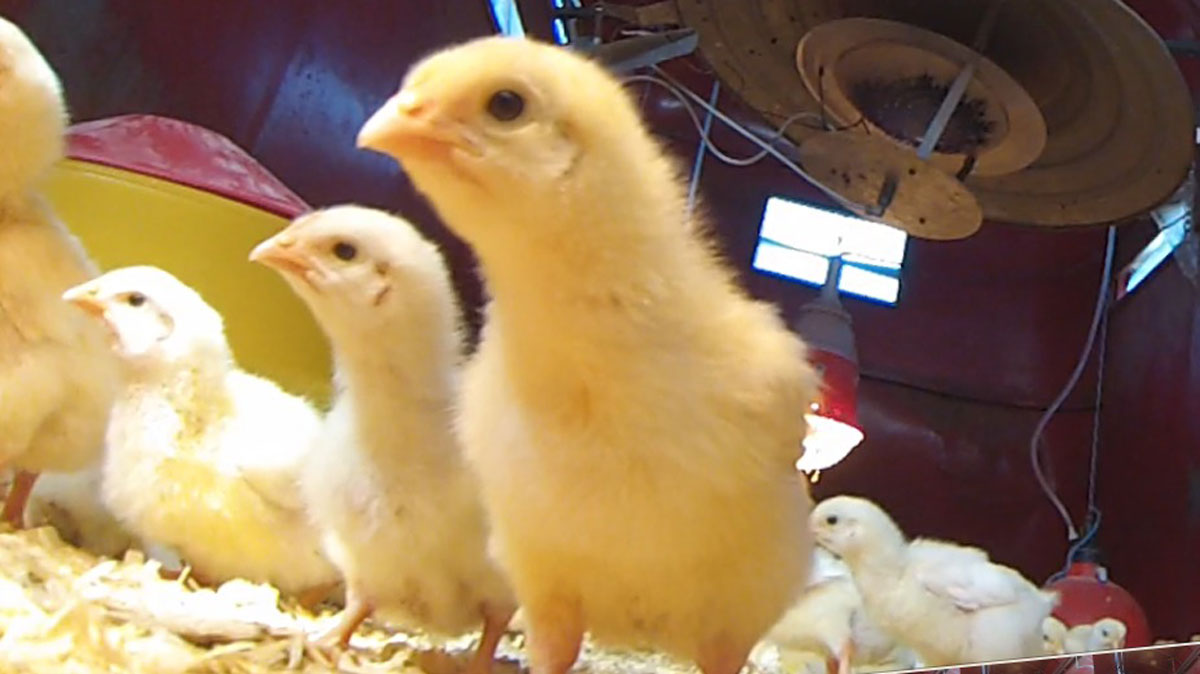
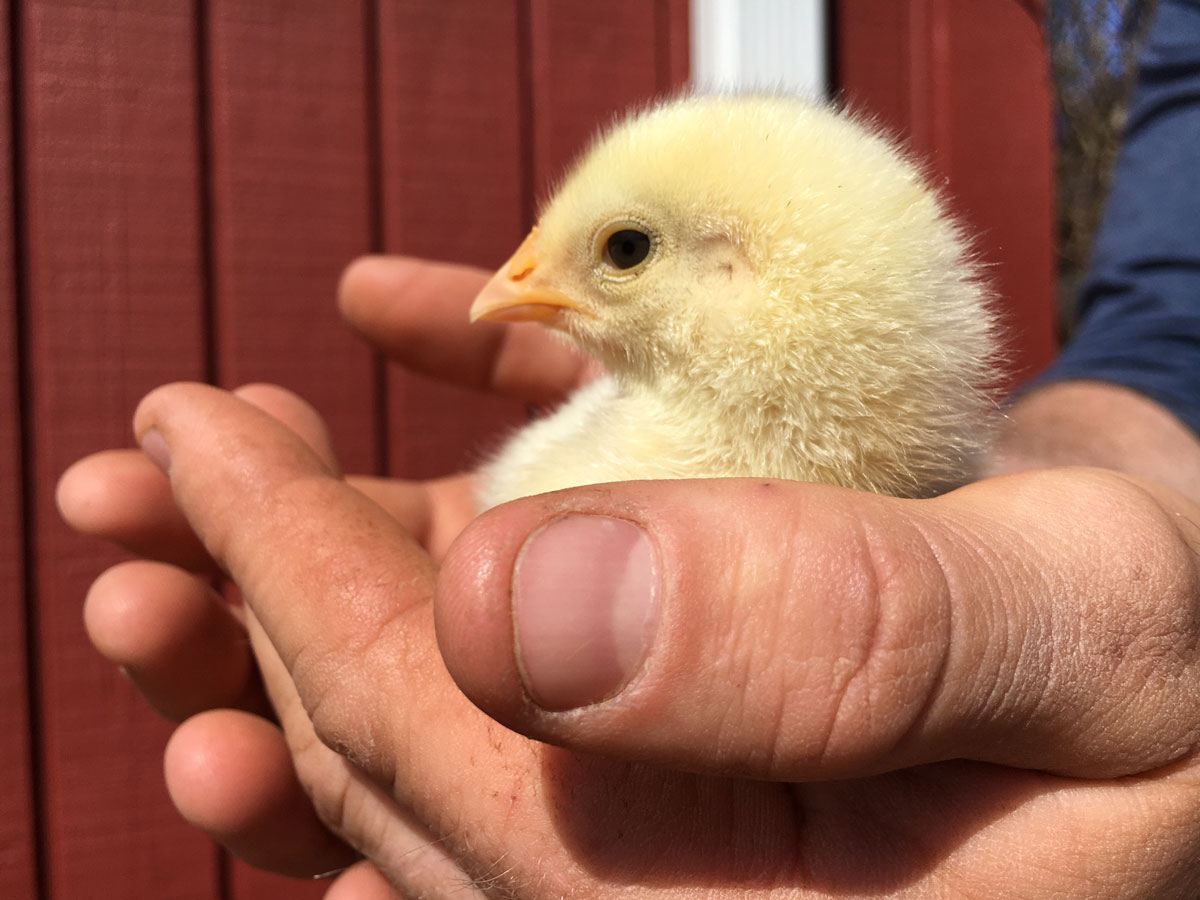
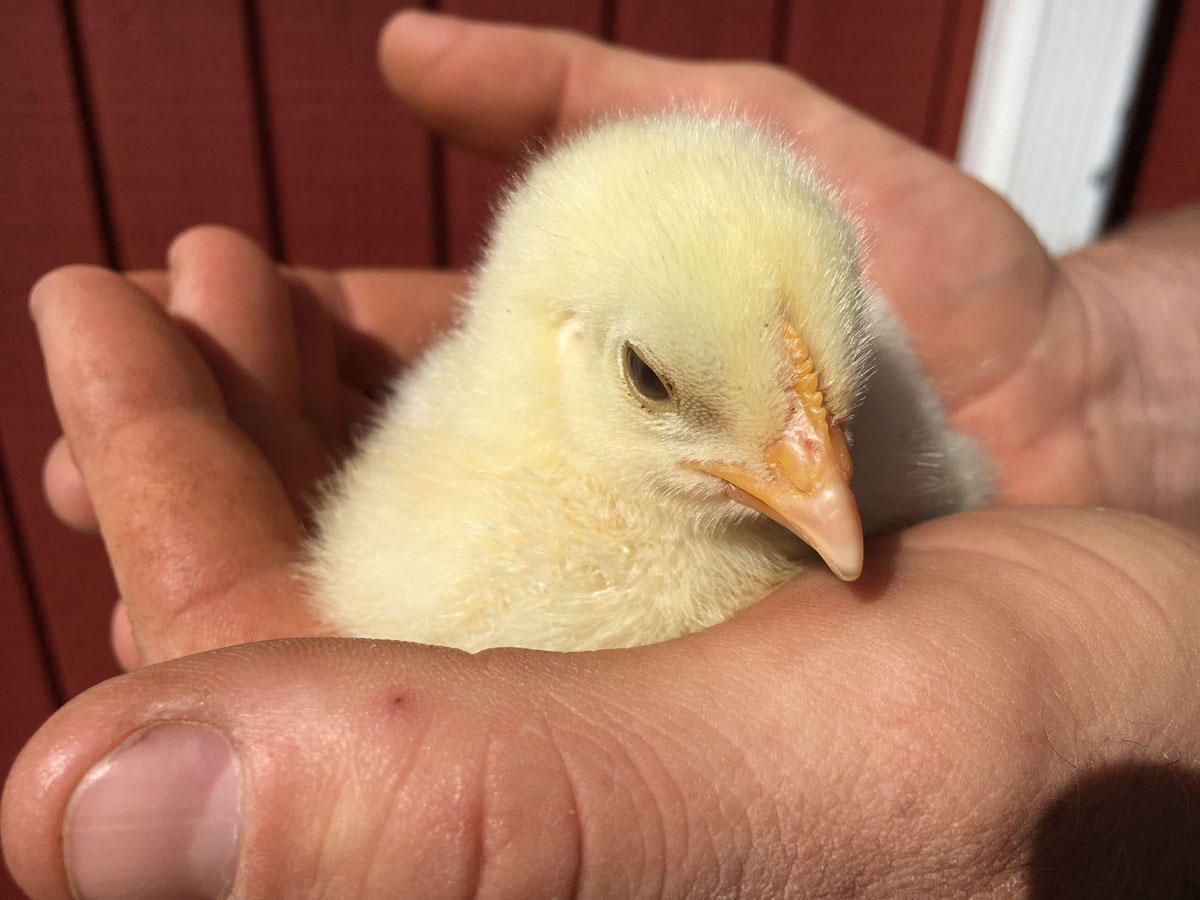
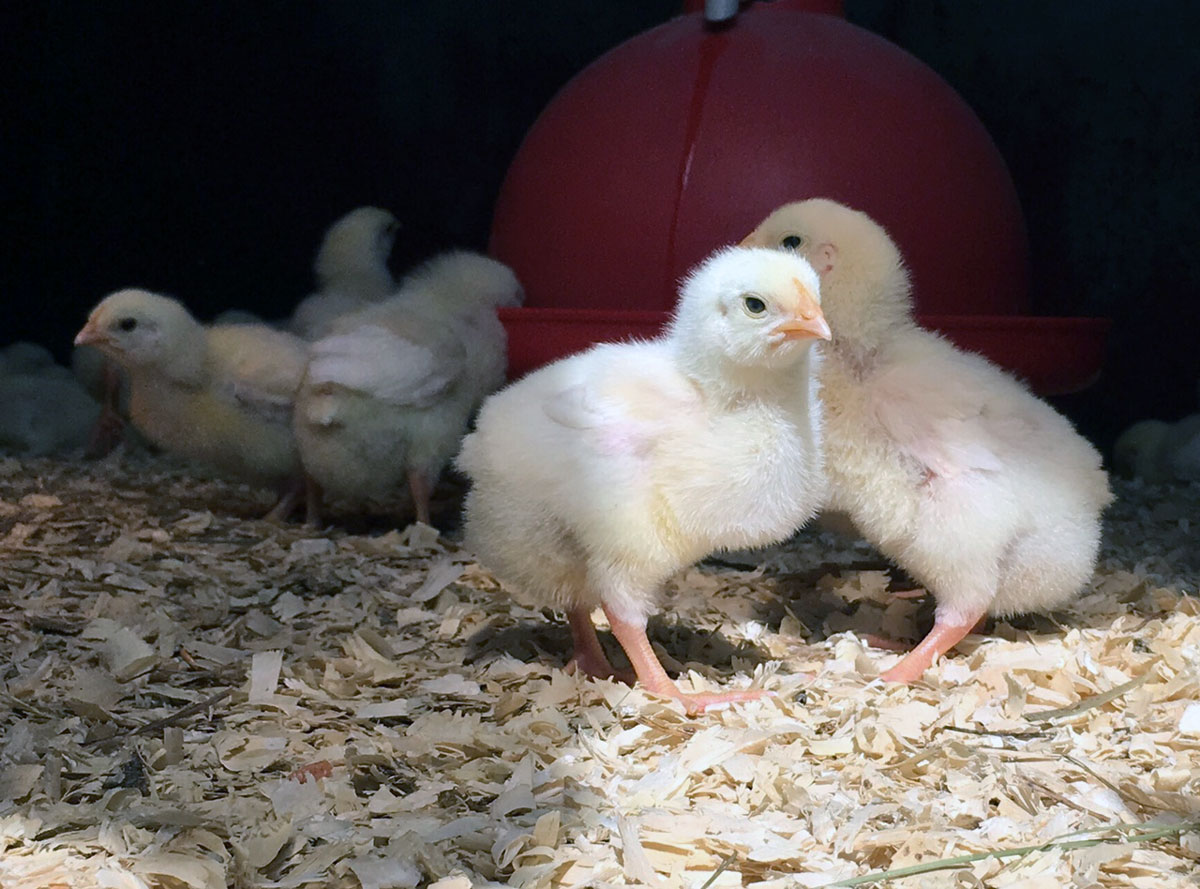
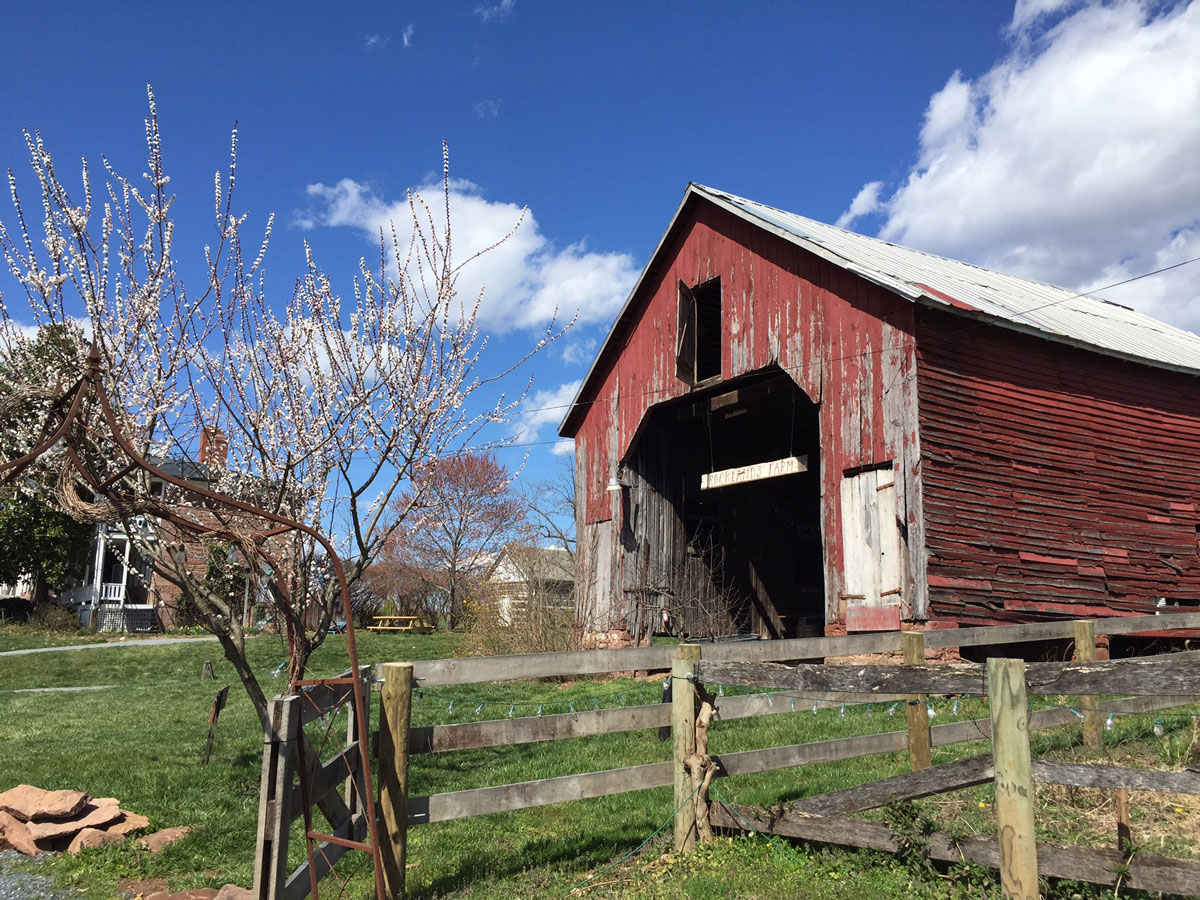
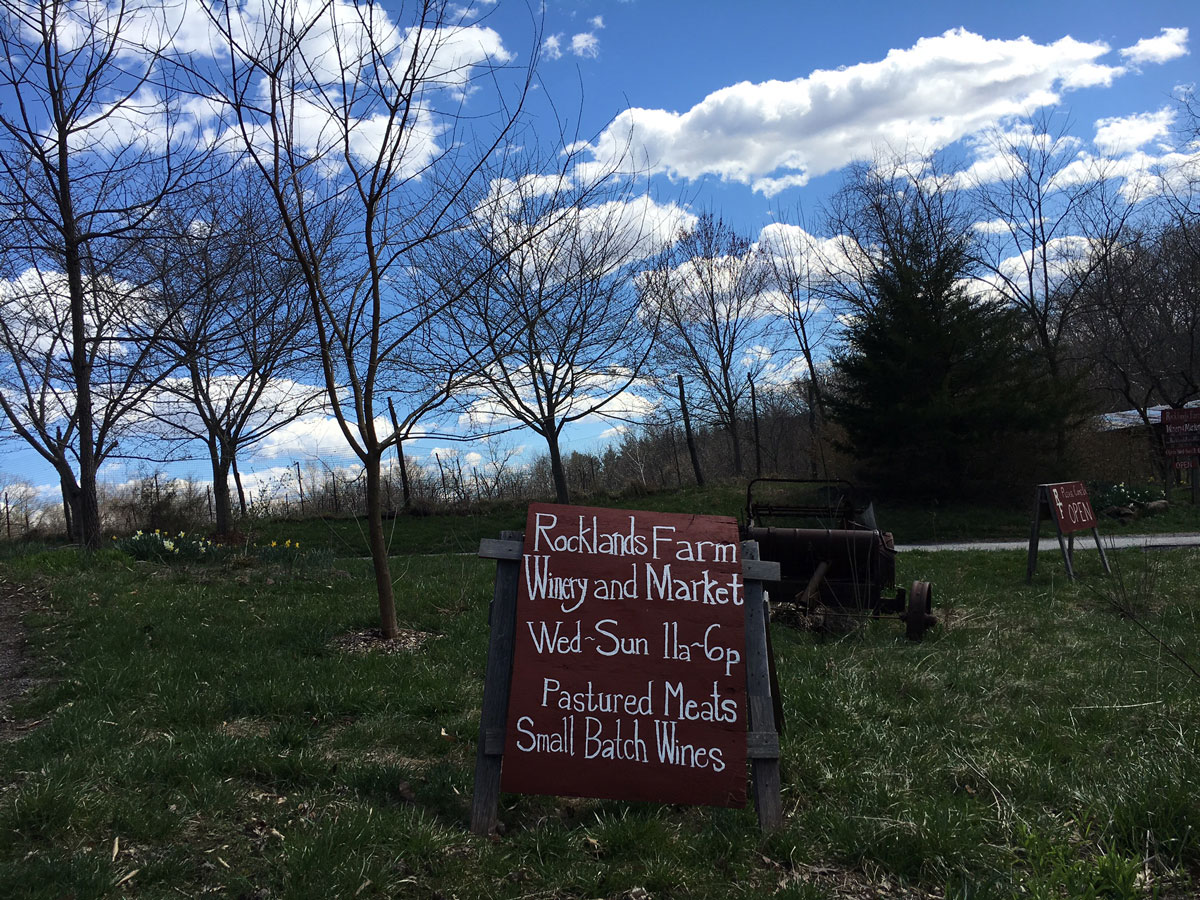
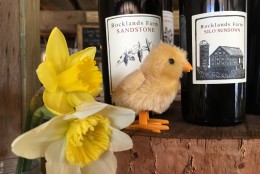
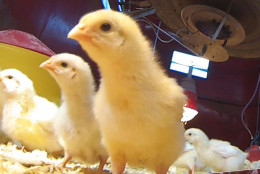
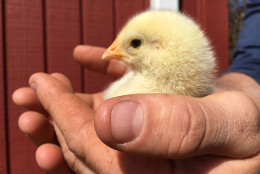
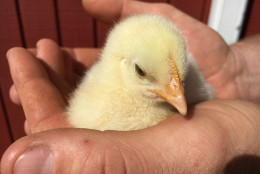
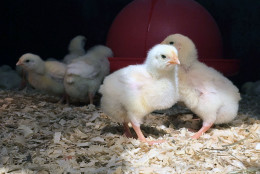
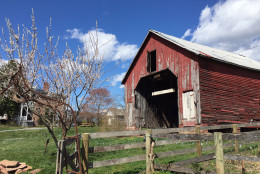
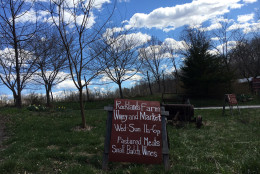
WASHINGTON — For many, the mention of Easter conjures the image of a fluffy bunny or little yellow chick.
Often, families might get their children a baby chick as an Easter present only to find themselves with a rapidly growing pullet … and no idea of what to do with it.
“We do get a lot of phone calls a week or two after Easter saying ‘Hey, we got some chicks for Easter and they’re chickens now — what do we do?’” says Greg Glenn, co-founder, CEO and Farm Manager at Rocklands Farm Winery and Market in Poolesville.
He can’t help by taking their young chickens off their hands: taking birds from outside his own registered flock could introduce disease, including avian flu.
But Rocklands Farm did come up with a program they hope prevents the post-Easter chicken abandonment — a chick rental program.
“You essentially get a box with two chicks. You get all the food and bedding you need for a week,” Glenn says, adding that renters also get instructions on how to care for the little peeps without the long-term commitment.
Glenn says kids enjoy the chance to have a chick in their care, and parents like knowing that they can introduce their kids to caring for an animal.
For kids, even the box that the chicks come from is a source of excitement.
“Even though it’s just a blank box, it’s been really fun for the kids,” he says.
Glenn says they decorate it, draw castles on it and, more importantly, take ownership of the whole process of housing and feeding an animal.
And there’s even a form of agricultural tech support. Run into a problem while the chick is in your care? Glenn says renters can call the farm for help, and if you find after just a few days it’s not a good fit, just bring the chicks back.
There are important things to remember: Maryland’s Department of Agriculture has recommended that whenever chicks are handled, it should be followed up by thorough hand washing. Rockland Farm’s care guide suggests that adults should be around to supervise when the chicks are being handled.
There is a life lesson involved here: Glenn says families are told from the start that these are not laying hens. These chickens are destined to end up on a plate.
“It’s a meat chicken, and it’s central to our mission at the farm, teaching people were their food comes from,” he says.
Glenn says the program has been successful in the four years it’s been running.
“We want to inform our community where their food comes from and instill a deep reverence for where that food comes from,” he says.
The program has been timed to coincide with Easter, but that’s not always the case. This year, families can register up until the end of April. The rental will run from May 7 to May 14.
You can learn more by visiting Rocklands Farm’s website.








